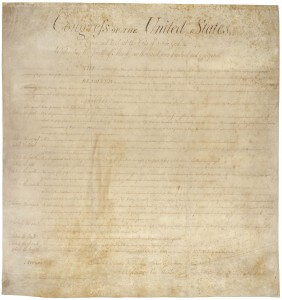Georgia has numerous laws designed to protect the elderly, many of which are little known. One such law is the “Bill of Rights for Residents of Long Term Care Facilities” (Patient Bill of Rights) found at Official Code of Georgia Annotated, Section 31-8-100 et seq.
The Patient Bill of Rights was designed to guarantee certain rights of elderly patients in long-term care facilities and nursing homes. This population is especially at risk, as many of them are isolated and unable to protect themselves. Specifically, the law seeks to “preserve the dignity and personal integrity of residents of long-term care facilities through the recognition and declaration of rights safeguarding against encroachments upon each resident’s need for self-determination.” Nursing home owners, administrators and operators who violate patient rights face civil penalties as well as legal action for damages suffered by patients, their heirs and legal representatives.
The law enumerates the following specific rights:
- Right to Notification of Rights, § 31–8–104 (right to receive notice of patient rights)
- Right to Certain Information, § 31–8–106 (right to rate information, statement of charges, administrator information, and written policies and procedures)
- Right to Nondiscriminatory Admission, § 31–8–107 (right to admission regardless of medical history or condition, unless facility cannot provide adequate care, treatment or services)
- Right to Care, Treatment, and Services, § 31–8–108 (right to appropriate care, treatment and services)
- Right to Freedom from Restraints, Isolation, or Restriction, § 31–8–109 (no restraints, restrictions or isolation unless necessary for safety of patient or others)
- Rights Relative to Pharmaceuticals, § 31–8–110 (right to choose pharmacy, pharmacist)
- Rights of Citizenship, § 31–8–111 (ability to exercise rights of citizenship including voting and freedom of religion, association and participation)
- Right to Personal Choice, § 31–8–112 (right to decide sleeping hours, consumption of alcohol and tobacco)
- Right to Personal Property, § 31–8–113 (right to keep money and personal belongings in private room or secured location)
- Right to Privacy, § 31–8–114 (right to privacy within room, during personal visits, in third party communications, and during medical care)
- Right to Fiscal Management, § 31–8–115 (right of patient or personal representative to manage financial affairs and handling of patient funds)
- Rights Relating to Transfer or Discharge, § 31–8–116 (no involuntary transfers except under specified conditions)
- Requirements for Temporary Suspension of Rights, § 31–8–117 (no suspension of rights except the right to refuse medical care or consume alcohol or tobacco with doctor’s certification)
- Right to Pursue Interest; Conflicting Rights; Right to Voice Complaints and Make Recommendations, § 31–8–118 (no reprisal for pursuit of patient rights or making complaints)
- Coerced Contributions from Family Prohibited; Use of and Receipt for Contributions, § 31–8–119 (restrictions on soliciting financial contributions from patient families)
- Access to Facility, § 31–8–120 (visitation rights)
- Residents’ Councils, § 31–8–121 (right to form and participate in residents’ counsel)
 Patients, their families and legal representatives may bring an action in court to enforce these rights. They may also pursue a claim for damages against the facility or administrator. Certain violations can give rise to claims of medical malpractice, such as cases involving inadequate medical care, denial of proper care or treatment, denial of nutrition, abuse and neglect. Unfortunately, such violations occur all too often in nursing homes and long-term care facilities, which are typically operated as for-profit businesses. Pressure to reduce overhead and expenses can directly lead to understaffing, inadequate training and education, and lack of proper procedures, in turn resulting in poor patient care.
Patients, their families and legal representatives may bring an action in court to enforce these rights. They may also pursue a claim for damages against the facility or administrator. Certain violations can give rise to claims of medical malpractice, such as cases involving inadequate medical care, denial of proper care or treatment, denial of nutrition, abuse and neglect. Unfortunately, such violations occur all too often in nursing homes and long-term care facilities, which are typically operated as for-profit businesses. Pressure to reduce overhead and expenses can directly lead to understaffing, inadequate training and education, and lack of proper procedures, in turn resulting in poor patient care.
If you believe a loved one’s rights have been violated, or a loved one has been injured in a long-term care facility or nursing home, contact the nursing home abuse and medical malpractice attorneys at Brownstein & Nguyen. We know the law, and fight for the rights of elder patients.
Image courtesy of the National Archives
